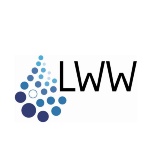SURUMER - Sustainable Rubber Cultivation in the Mekong Region
- Abstract
-
Rubber cultivation is assumed to affect the local and regional ecosystems directly and indirectly. Consequences arising out of this may include loss of fertile soil by erosion, habitat losses as well as lowering the groundwater table.
The main research objectives of this project are to assess the impacts of rubber cultivation on aquatic ecosystems within the Naban River Watershed. Investigations on hydraulic and morphological conditions are carried out by detecting the present ecological status of the river. Additional investigations regarding the influence of land erosion and fine sediment being washed into the river are implemented. Detailed examination on fine sediment infiltrations into the river bed also takes place at the study site. Impacts on fish habitats due to changing habitat conditions and habitat losses will be detected along the river.
A sophisticated Water Management Tool (WMT) with a coupled emission/immission-based approach will be developed to monitor the water resources in the study region and to protect these water resources against land use pressure, especially through rubber cultivation. Additionally water quality aspects will be considered relating to the water bodies as important drinking and process water resources, and to the surface waters as natural habitats. The WMT could be a superior measure to preserve the sustainability of water-related ecosystem services in rubber-dominated regions.
For more detailed information please click here. - Project manager
-
- Research assistants
-
Lydia Seitz
- Department
- Duration
-
From: 2011.12.01
To: 2016.11.30
- Finances
-
Federal Ministry of Education and Research (BMBF)
- Cooperation partners


